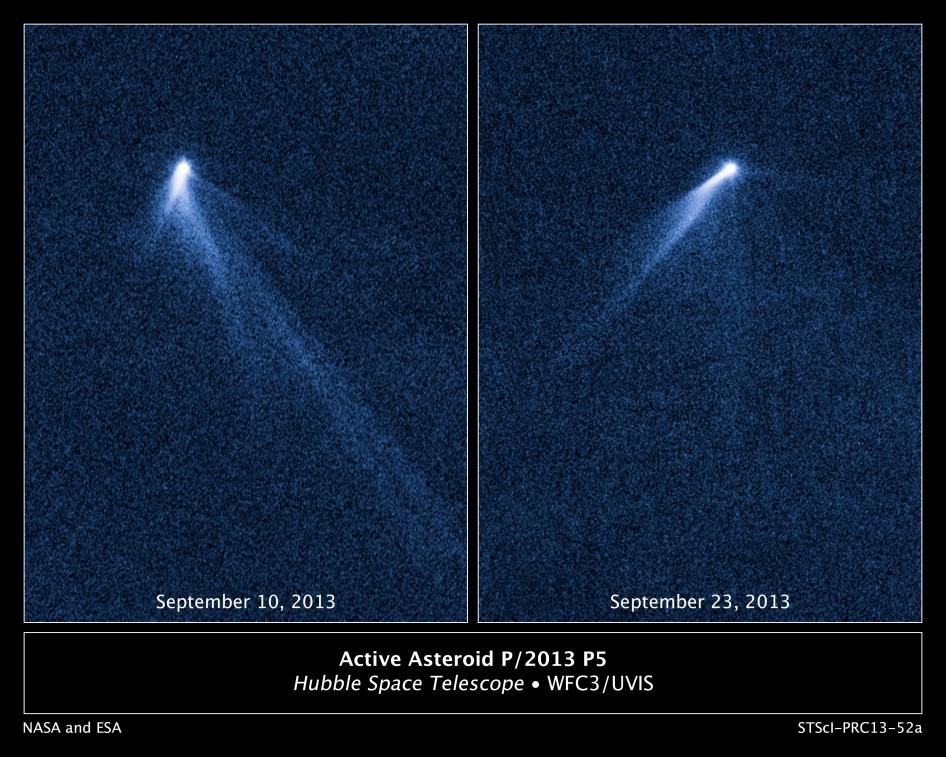Six-tailed comet spotted by scientists
This NASA Hubble Space Telescope set of images reveals a never-before-seen set of six comet-like tails radiating from a body in the asteroid belt, designated P/2013 P5.The asteroid was discovered as an unusually fuzzy-looking object with the Panoramic Survey Telescope and Rapid Response System (Pan-STARRS) survey telescope in Hawaii. The multiple tails were discovered in Hubble images taken on Sept. 10, 2013. When Hubble returned to the asteroid on Sept. 23, the asteroid’s appearance had totally changed. It looked as if the entire structure had swung around.
Scientists have identified a space rock that has six spinning "tails" with the assistance of the Hubble Space Telescope — a strangely beautiful astral body that resembles a skewed comet.
"We were literally dumbfounded when we saw it," said lead investigator David Jewitt of the University of California at Los Angeles, according to a NASA press release.
"Even more amazing, its tail structures change dramatically in just 13 days as it belches out dust. That also caught us by surprise. It's hard to believe we’re looking at an asteroid."
More from GlobalPost: Comet rained fire on earth 28 million years ago
The findings, published in The Astrophysical Journal Letters this week, are unprecedented, and the comet has been named P/2013 P5.
Scientists suspect that the comet's bizarre appearance may be because it has begun to rotate so fast it is beginning to fall apart — destruction that the six "tails" are a natural testament to.
It's probable that more strange structures like P/2013 P5 are out there. "In astronomy, where you find one, you eventually find a whole bunch more," said Jewitt in the NASA release. "This is just an amazing object to us, and almost certainly the first of many more to come."
What's the difference between an asteroid and a comet — terms that have both been used to describe P/2013 P5? According to NASA's Near Earth Object Program, an asteroid is defined as "a relatively small, inactive, rocky body orbiting the Sun." Think of a giant space rock. Perhaps even the one Bruce Willis had to destroy in "Armageddon."
Meanwhile, a comet is described as "a relatively small, at times active, object whose ices can vaporize in sunlight forming an atmosphere (coma) of dust and gas and, sometimes, a tail of dust and/or gas." Think of the Hale-Bopp comet from the 1990s.
P/2013 P5 fits the description of both in some respects, which may explain the interchangeable term. For reference, the Chelyabinsk meteor that hit Russia this year was an asteroid, not a comet.
The World is an independent newsroom. We’re not funded by billionaires; instead, we rely on readers and listeners like you. As a listener, you’re a crucial part of our team and our global community. Your support is vital to running our nonprofit newsroom, and we can’t do this work without you. Will you support The World with a gift today? Donations made between now and Dec. 31 will be matched 1:1. Thanks for investing in our work!
